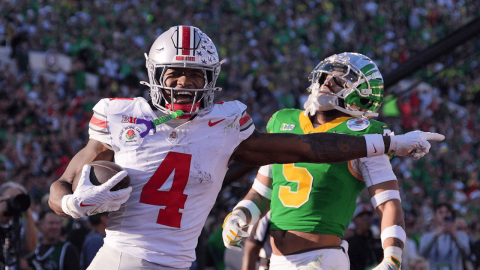Robinhood Expands Prediction Markets to Pro and College Football, Bridging Finance and Sports
In a move that underscores its ambition to stretch far beyond conventional brokerage services, Robinhood Derivatives, LLC (RHD) has announced the expansion of its Prediction Markets Hub to include contracts tied to professional and college football games. The development represents more than a novelty feature—it reflects Robinhood’s strategy to embed financial trading deeper into cultural touchpoints like sports, where engagement and volatility mirror the dynamics of markets. By doing so, the brokerage continues its push to position itself not simply as a discount broker but as a ubiquitous platform for democratized trading across asset classes.
Football Drives the Next Phase of Prediction Markets
Robinhood’s entry point is no accident. Football remains the undisputed champion of American sporting culture, commanding unparalleled attention and delivering consistent engagement. At launch, Robinhood users will gain access to contracts covering the first two weeks of both the professional and collegiate football seasons, including every regular-season NFL matchup and games from the Power 4 conferences and independent college programs.
New weekly contracts will roll out over time—Week 3 trading markets will only open after Week 1 closes—designing a staggered release that mirrors the tempo of the season itself. This structure makes the experience dynamic, ensuring that customers stay active within the platform throughout the sports calendar.
JB Mackenzie, Vice President and General Manager of Futures and International at Robinhood, called the expansion “a no-brainer,” emphasizing football’s cultural resonance and Robinhood’s broader mission. “Our goal is to transform Robinhood into a one-stop destination for everything trading-related,” Mackenzie noted. “Adding football expands accessibility in ways that align culture, finance, and innovation.”
How Prediction Markets Differ From Traditional Bets
It is critical to differentiate Robinhood’s offering from common sports betting platforms. Unlike sportsbooks that use fixed odds and betting lines, Robinhood structures its product as event markets regulated by the Commodity Futures Trading Commission (CFTC).
Here’s how the system works:
Contracts trade in real-time on the basis of supply and demand. Prices fluctuate as sentiment shifts, mirroring the mechanics of equity or derivative markets.
Traders are not locked in once they purchase a contract—they may adjust, liquidate, or hedge positions mid-game before contract expiration.
Profitability is tied to market dynamics, not the house edge of a sportsbook.
This places Robinhood’s model closer to a futures market than a betting parlor, offering participants not only a way to speculate on outcomes but also to manage risk dynamically—something seasoned traders will immediately recognize.
Strategic Implications for Robinhood
The decision to fold football into the Prediction Markets Hub is more than a bid for user growth—it’s a statement of intent. It demonstrates Robinhood’s perception of prediction markets as a bridge between finance and culture.
Consider the implications:
Expanded Use Cases
Prediction markets create a sandbox where finance intersects with various sectors—sports, politics, and current events. This fluidity enhances Robinhood’s ecosystem by closely aligning it with the storylines that drive public attention.
User Engagement and Retention
Football generates loyalty across generations of fans. By tapping into this fervor through a regulated financial mechanism, Robinhood effectively captures daily and weekly engagement, creating habits akin to those that drive trading activity during earnings season or macroeconomic announcements.
Regulatory Positioning
By structuring these markets under CFTC oversight, Robinhood positions itself not as a sportsbook operator but as a legitimate financial marketplace. This distinction shields it from the fragmented state-by-state sports betting regulations, granting it national scalability under established derivatives rules.
Football as a Cultural and Financial Convergence
Robinhood’s innovation makes sense when considering the bigger picture. Sports, particularly football, have become arenas for financial speculation whether through fantasy leagues, sports betting platforms, or daily fantasy sports operators. Yet, most of these avenues are confined within the bounds of gambling regulation.
By offering a regulated, tradable market, Robinhood effectively legitimizes what many participants already treat as an investment-like endeavor. The move suggests that the line between entertainment and trading is likely to blur further, especially as Robinhood extends its contracts to other cultural arenas such as elections, global events, or entertainment outcomes.
Investor Takeaways
For investors and market watchers, Robinhood’s football initiative signals several key insights:
Diversification of Revenue Streams: The company is broadening beyond equities and options into prediction markets, carving a higher-engagement product with limited substitutes in mainstream fintech.
Competitive Differentiation: By entering a regulated prediction market instead of conventional betting, Robinhood distinguishes itself from sportsbooks while leveraging its brand strength in financial trading.
Potential for Scalability: Success in football contracts could set the stage for other event-based products, giving Robinhood a differentiated edge in retail trading competition.
Big Push for Prediction Markets and Stronger Competition in the Segment
Robinhood’s extension of its Prediction Markets Hub into pro and college football is both an aggressive growth strategy and a cultural play. By framing these markets not as bets but as regulated contracts, Robinhood reinforces its identity as a pioneer in democratizing finance—meeting users where their passions intersect with market mechanics.
If successful, this approach may usher in a new era of event-based trading that expands retail participation beyond traditional stocks and options into domains where speculation and culture seamlessly merge. Football, then, is just the kickoff.
